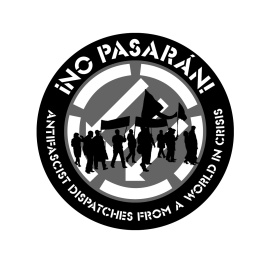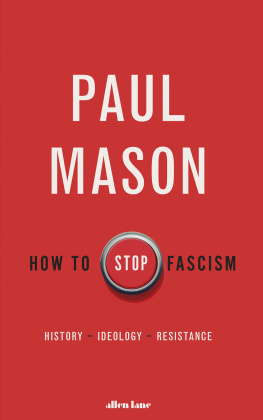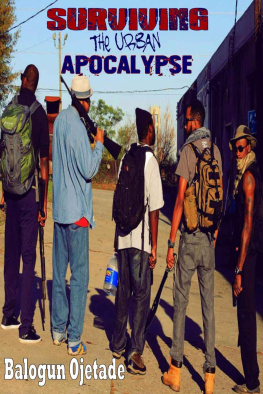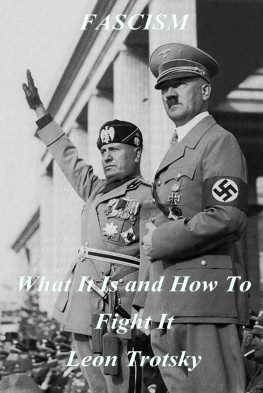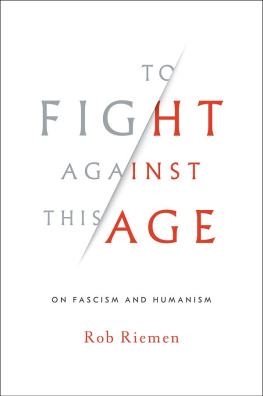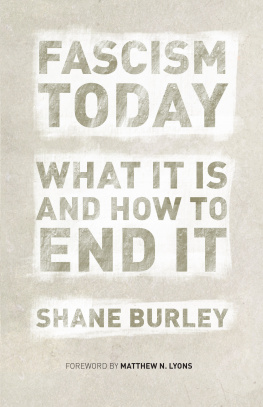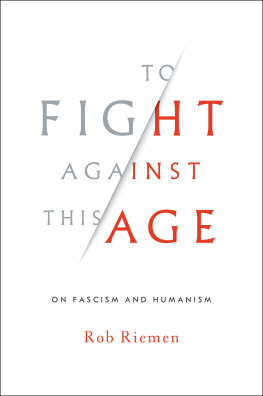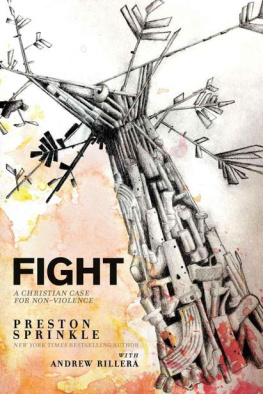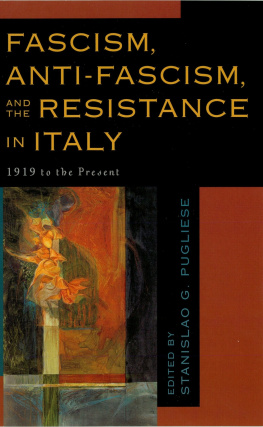Shane Burley - Why We Fight: Essays on Fascism, Resistance, and Surviving the Apocalypse
Here you can read online Shane Burley - Why We Fight: Essays on Fascism, Resistance, and Surviving the Apocalypse full text of the book (entire story) in english for free. Download pdf and epub, get meaning, cover and reviews about this ebook. year: 2021, publisher: AK Press, genre: Politics. Description of the work, (preface) as well as reviews are available. Best literature library LitArk.com created for fans of good reading and offers a wide selection of genres:
Romance novel
Science fiction
Adventure
Detective
Science
History
Home and family
Prose
Art
Politics
Computer
Non-fiction
Religion
Business
Children
Humor
Choose a favorite category and find really read worthwhile books. Enjoy immersion in the world of imagination, feel the emotions of the characters or learn something new for yourself, make an fascinating discovery.

- Book:Why We Fight: Essays on Fascism, Resistance, and Surviving the Apocalypse
- Author:
- Publisher:AK Press
- Genre:
- Year:2021
- Rating:3 / 5
- Favourites:Add to favourites
- Your mark:
- 60
- 1
- 2
- 3
- 4
- 5
Why We Fight: Essays on Fascism, Resistance, and Surviving the Apocalypse: summary, description and annotation
We offer to read an annotation, description, summary or preface (depends on what the author of the book "Why We Fight: Essays on Fascism, Resistance, and Surviving the Apocalypse" wrote himself). If you haven't found the necessary information about the book — write in the comments, we will try to find it.
Shane Burley: author's other books
Who wrote Why We Fight: Essays on Fascism, Resistance, and Surviving the Apocalypse? Find out the surname, the name of the author of the book and a list of all author's works by series.
Why We Fight: Essays on Fascism, Resistance, and Surviving the Apocalypse — read online for free the complete book (whole text) full work
Below is the text of the book, divided by pages. System saving the place of the last page read, allows you to conveniently read the book "Why We Fight: Essays on Fascism, Resistance, and Surviving the Apocalypse" online for free, without having to search again every time where you left off. Put a bookmark, and you can go to the page where you finished reading at any time.
Font size:
Interval:
Bookmark:
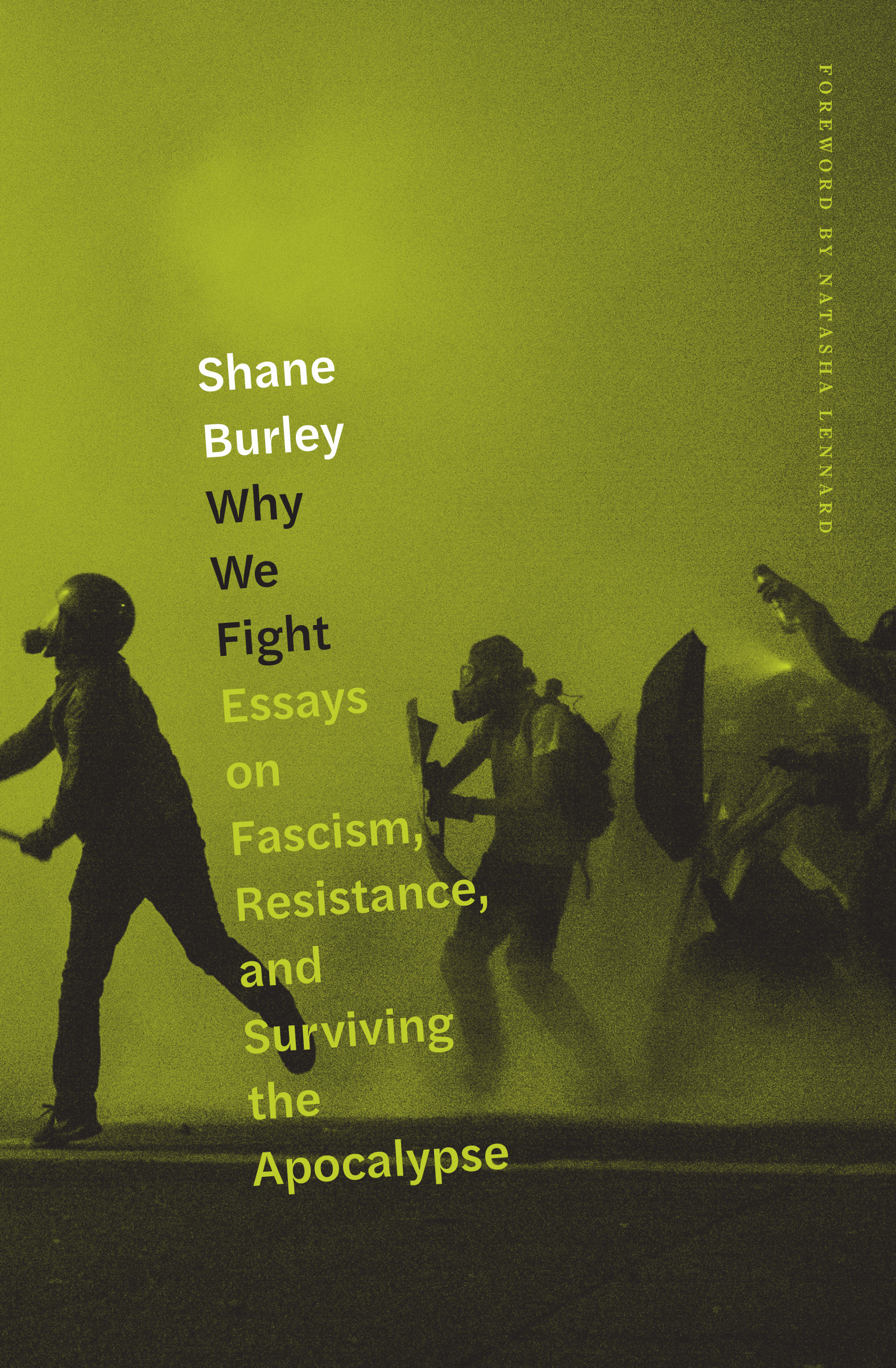
S hane B u r ley
W hy W e Fi g h t
E s s ays on Fascism, R e s istanc e , and S urv i vi n g t h e A p o c a ly p se
f o r e w or d b y n a t a s h a l e n n a r d

For my wife, Alexandra Burley, who showed me how to build a home out of love and kindness and is at the heart of everything I have ever written. And for Yaka aka Armeanio Lewis aka Sean Kealiher, who will live forever in our hearts, without hope and in total rebellion
In an August 2020 essay, published some months after this collection was first compiled, Shane Burley took us back to Charlottesville in 2017. Though the Trump presidency is marked by an assiduous march of horrors, Charlottesville still stands out as a key moment in which the stakes and severity of the situation came into focus, he wrote.
It speaks to Burleys point, when we speak of the intolerable events of the Unite the Right Rally in Virginia, we speak in synecdoche: we need only say Charlottesville. It was there, that White supremacists marched Klan-like with burning torches and Nazi salutes while chanting Jews will not replace us!a gruesome pastiche of nineteenth century American and twentieth century European race hate, now adorned with MAGA hats. It was there that a neo-Nazi plowed his Dodge Charger into a crowd of antifascist counter-protesters, killing Heather Heyer and injuring many. A young Black man was viciously beaten by racists with metal poles in a parking lot by a police station. Charlottesville was where the flimsy veil of plausible deniability about the violent fascism of the Alt Right had been ripped off. And, in response, the contemporary shape of antifascist rebellion began to emerge.
In the years that have followed, as Burley traces in these pages, the specific coalition of the far-right that constituted Charlottesville has all but collapsed. Richard Spencer, in many ways the father of the Alt Right, is now a failed drunk without a movement to lead. Even his neologism, Alt Right, has fallen out of popular parlance. Yet key to understanding the threat of fascisms proliferation today is to reckon with the ways in which a fascist politics has exceeded its embodiment in the Alt Right shock troops. Burleys collected essays offer perhaps the clearest and most incisive study available into how the rise and implosion of a neo-fascist movement can coalesce with fascisms broader rise.
Burleys interrogation into the drives, mythologies, and habits of todays fascist movements in the U.S.and their contradictions and failuresis as much a document of history as it is an antifascist intervention. To follow his analysis of how the far-right works , which he situates in extensive research and reporting, is to understand why a retreat to liberal centrism and reason is no solution at all. Its of note, that when Spencer canceled his college toura major inflection point in his demisehe did not blame his defeat on losing out in the so-called marketplace of ideas. He blamed antifa.
Establishment commentators and politicians looked aghast at the violent spectacle of Charlottesville: the event, like the rise of Trump, was digestible to them only as an aberration in historys mythic arc of progress. This is not my country, and this is not my president, cried liberal Americans of their country and their president. As if fascist rule, with its techniques forged in colonialism, were not always continuous with modernity. Bertolt Brecht wrote in 1935, Those who are against Fascism without being against capitalism, who lament over the barbarism that comes out of barbarism, are like people who wish to eat their veal without slaughtering the calf. They are willing to eat the calf, but they dislike the sight of blood. In the same critical vein, Burleys essays refuse to let racial capitalismthe perennial condition for fascismoff the hook.
In 2016, a media cottage industry emerged, dedicated to defining fascism in order to prove that we are not faced with it. But now, in the midst of the worst public health and economic crisis in a century, federal troops are kidnapping antiracist protesters in the streets, ICE concentration camps are a normalized fact of border policy, and the State has named antifa as its enemy, while the deadly reality of far-right extremist violence is all but ignored if not sanctioned. Meanwhile, the states response to the Coronavirus pandemic made ever clearer its racist, classist necropolitical governance: make work and let die.
As antiracist uprisings swept through the United States in the summer of 2020, following the police execution of George Floyd, far-right violence escalated in turn. The vast federal law enforcement apparatus oriented its effortsincluding vicious arrests, raids, overreaching prosecutions and authoritarian crowd controlto quash left-wing rebellion and the struggle for Black lives. Meanwhile, the scattered forces of right-wing militiae amassed in the streets from Oregon to Arizona, armed with military grade weapons. Kyle Rittenhouse, a seventeen-year-old Trump enthusiast, crossed state lines from Illinois to Kenosha, Wisconsin, where he shot dead two Black Lives Matter protesters. He is a conservative hero now; prior to his killing spree, law enforcement officers thanked him and his fellow vigilantes for their presence at the protests. There has never been a time in American history when the State has abandoned its alignment with white supremacy. In 2020, as a pandemic raged, poverty soared, and a righteous rebellion erupted, the fascistic allegiances between State forces and far-right gangs stood in plain sight. Burley makes clear: we face Trump-emboldened fascist constellations, which neither began with his presidency, nor will be felled simply by virtue of his unseating.
White supremacy and social hierarchy are implicit in class society, but fascism seeks to make it explicit, Burley writes. The only thing that will end fascism in perpetuity is to destroy the mechanisms that allow it to arise in the first place. For myself, there is no doubt that it is appropriate to deploy the term fascism when speaking of todays far-right constellations: from the heavily armed militia groups hounding immigrants on the Southern border, to the cops extinguishing Black life after Black life, to every corner of the Trump administration. We deploy that weighted term, fascism, not only as an accurate label for certain political tendencies, but as a way to invoke an unambiguous antifascist response: a refusal to give fascism an inch.
Yesterdays Alt Right may be a fractured and fumbling mess, in large part thanks to the effective and disruptive deplatforming work taken up by antifa participants. But antifascist struggle is not simply a game of whac-a-mole, aimed at shutting down each neo-fascist assemblage that pops up. Burley invokes a more profound fight, against fascism and the racial capitalism that breeds it, and for each other and our mutually dependent survival and flourishing. As he reminds us, We have never won anything on our own, and so in the face of repression from above, the only antidote is solidarity from below.
Natasha Lennard
October 2020
A Home at the End of the World
We have always lived in slums and holes in the wall. We will know how to accommodate ourselves for a while. For you must not forget that we can also build. It is we who built these palaces and cities, here in Spain and America and everywhere. We, the workers. We can build others to take their place. And better ones. We are not in the least afraid of ruins. We are going to inherit the earth; there is not the slightest doubt about that. The bourgeoisie might blast and ruin its own world before it leaves the stage of history. We carry a new world here, in our hearts. That world is growing in this minute.
Font size:
Interval:
Bookmark:
Similar books «Why We Fight: Essays on Fascism, Resistance, and Surviving the Apocalypse»
Look at similar books to Why We Fight: Essays on Fascism, Resistance, and Surviving the Apocalypse. We have selected literature similar in name and meaning in the hope of providing readers with more options to find new, interesting, not yet read works.
Discussion, reviews of the book Why We Fight: Essays on Fascism, Resistance, and Surviving the Apocalypse and just readers' own opinions. Leave your comments, write what you think about the work, its meaning or the main characters. Specify what exactly you liked and what you didn't like, and why you think so.

